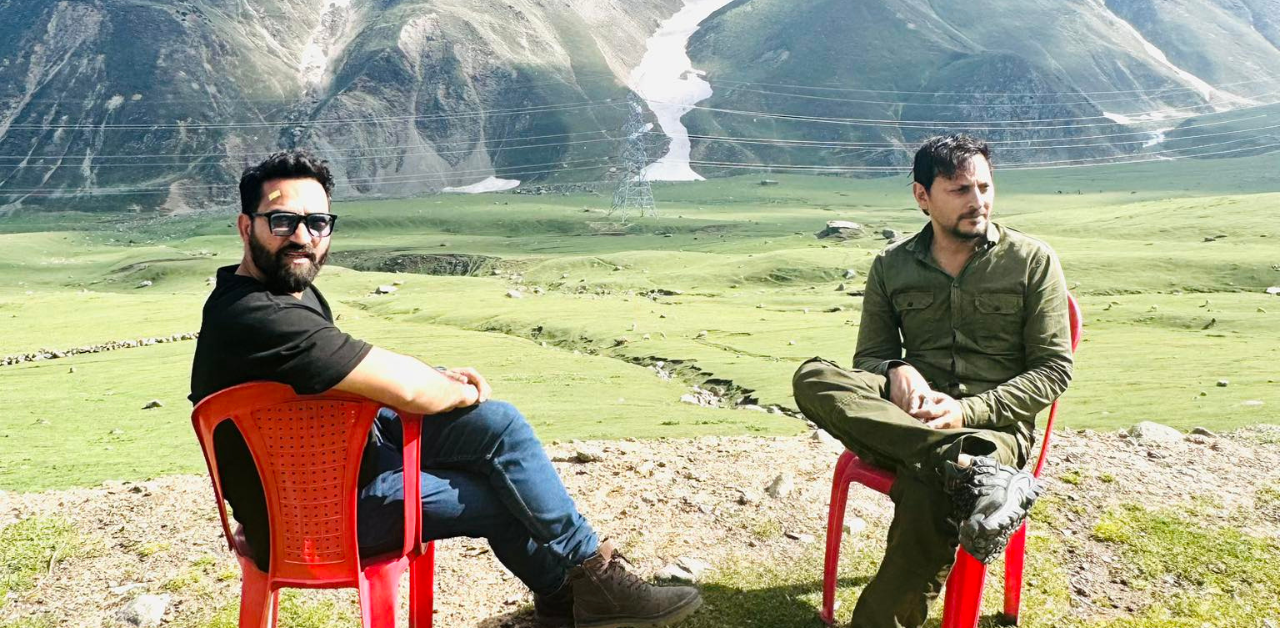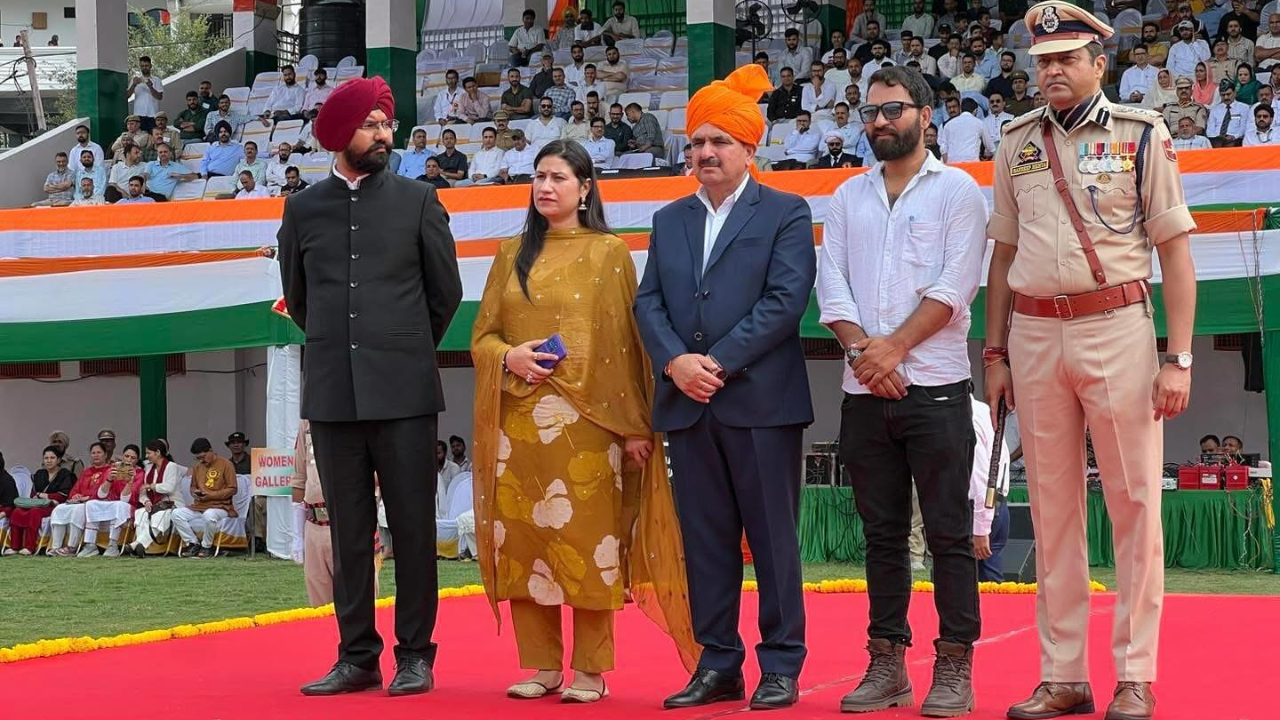MLA Mehraj Malik: Separating Fact from Fiction on Disqualification Claims

The recent detention of MLA Doda East Mehraj Malik, who also serves as the Jammu & Kashmir unit president of the Aam Aadmi Party, has triggered a wave of confusion, speculation, and politically charged narratives across social media platforms. While Malik’s arrest under the Public Safety Act (PSA) is a matter of public record, the interpretations and claims that have emerged in its aftermath reveal how quickly misinformation can distort both legal and political realities.
At the heart of the controversy lies a widespread claim: that Malik’s detention would automatically disqualify him from his position as an elected representative, in line with the newly proposed “Constitution 13th Amendment Bill 2025.” Various influencers and commentators have suggested that, under this bill, any MLA or MP detained for more than 30 consecutive days would lose their membership. This narrative, though widely circulated, is deeply misleading and legally inaccurate.
The source guide on the issue makes the situation clear. First, the 13th Amendment Bill 2025 is not yet law; it is merely a proposed bill currently under the scrutiny of a Joint Select Committee of Parliament. More importantly, even if enacted, the amendment is designed specifically for individuals holding ministerial offices—Prime Minister, Chief Ministers, Union Ministers, and State Ministers—who face severe charges resulting in a sentence of five or more years, combined with 30 days of continuous detention. The bill has no bearing on ordinary MLAs or MPs, and therefore, Mehraj Malik does not fall under its purview.
The rules governing the disqualification of MLAs and MPs are already enshrined in the Representation of the People’s Act (1951). Section 8(3) of the Act explicitly states that disqualification occurs only if a legislator is convicted and sentenced to two or more years of imprisonment. Detention under PSA, even for an extended period, does not amount to conviction and thus does not trigger disqualification. Past precedents further underscore this distinction: Lalu Prasad Yadav (2013), J. Jayalalithaa (2014), and Azam Khan (2022) were all disqualified only after formal court convictions with sentences of two years or more.
In Malik’s case, his detention under PSA may last months or even years, but unless he is convicted by a competent court, his membership in the legislative assembly remains intact. This is why many legal experts argue that the PSA, often criticised for its sweeping powers, will face serious challenges in sustaining Malik’s detention once reviewed by the judiciary.
Adding to the noise are claims of central government intervention and allegations that Malik’s legal team has been shaped by external influencers. These claims, however, lack evidence. On the contrary, reports indicate that Malik’s legal representation was put together both by his party and his local support base, with several lawyers volunteering to fight his case pro bono. Likewise, suggestions of direct involvement from the Union Home Ministry are unsubstantiated; the PSA was invoked by the Deputy Commissioner of Doda and remains subject to confirmation by the Jammu & Kashmir government.
The role of journalists and social media reporters in amplifying the story also deserves attention. While some have been accused of sensationalism, many young local journalists in Jammu & Kashmir have worked diligently to provide ground-level updates, ensuring that Malik’s case remains in circulation. As the source commentary cautions,
journalism should not be judged by viral views but by factual reporting. In an era where misinformation spreads rapidly, their work highlights the need to separate fact from speculation.
Ultimately, the Mehraj Malik case is not just about the fate of a single MLA. It is a litmus test for the strength of democratic safeguards, the responsibility of media, and the resilience of legal institutions in Jammu & Kashmir. The coming weeks, particularly the judicial review of the PSA detention, will determine whether Malik’s arrest was legally sustainable or politically motivated. Until then, it is crucial to resist the pull of exaggerated claims and remain grounded in constitutional realities
No Relief for Mehraj Malik Govt Likely to Confirm PSA The Case of Mehraj Malik
The case of Mehraj Malik, MLA from Doda East, has become one of the most debated political and legal flashpoints in Jammu and Kashmir. Recent reports surrounding his detention under the Public Safety Act (PSA) have triggered a wave of speculation, misinformation, and heated commentary across media and political circles. Two days ago, Chief Minister Omar Abdullah made a public statement suggesting that the High Court had provided “major relief” to Malik and hinted that this could pave the way for the government to withdraw the PSA imposed on him.
However, closer scrutiny of court documents and legal proceedings reveals a very different picture—one that underscores the complexity of PSA law, the procedural hurdles in challenging it, and the uncertain path that lies ahead for Malik and his legal team.
At the heart of the issue lies an FIR registered against Malik for allegedly engaging in verbal abuse against a doctor. This FIR (No. 00130/2025) became the basis for legal proceedings that eventually led to the Doda Deputy Commissioner invoking the PSA. The case then moved to the Jammu & Kashmir and Ladakh High Court, where it was taken up by Justice Rajesh Sikri on 6 August 2025. During the hearing, Malik was represented by advocates M.A. Bhatt and A.B. Bhatt, while the government’s case was argued by Advocate Adarsh Bhagat.
The court, while hearing the matter, did not provide the sweeping relief that many assumed. Instead, it directed that the investigation into the FIR could continue but restrained the police from immediately filing a charge sheet until further orders of the court. This subtle yet important distinction is at the core of the misunderstanding. The High Court did not quash the FIR, did not halt the investigation, and certainly did not strike down the PSA detention order. The matter has been scheduled for further hearing on 31 October 2025, leaving Malik’s fate tied closely to the courtroom and the arguments his legal counsel can present.
What complicates the matter further is the government’s stance on the PSA. Under the law, once a Deputy Commissioner issues a PSA detention order, the government has 12 days to confirm or revoke it. Sources suggest that the government has already decided—or is on the verge of deciding—to confirm Malik’s PSA detention rather than withdraw it. This implies that even if some relief appears in the ongoing FIR investigation, the overarching PSA will continue to bind Malik in detention unless successfully challenged before the court.
Legal experts point out that the Public Safety Act operates within a strict technical framework. Relief cannot be secured through apologies, public campaigns, or emotional appeals. Instead, Malik’s legal team must challenge the PSA on procedural and constitutional grounds.
Questions such as whether the detention dossier was properly prepared, whether the FIRs cited are strong enough, and whether due process was followed will form the crux of the courtroom battle. Previous PSA cases have been quashed on such technicalities, but each case is unique, and the burden rests on the lawyers to prove procedural lapses.
Another layer of complexity arises from the Advisory Board mechanism under the PSA. Once a detention order is confirmed by the government, it must also be approved by an Advisory Board chaired by a retired judge and comprising two members. Malik’s legal team may also have to demonstrate before this board that the grounds for detention are weak or flawed. Only after exhausting these remedies can they seek relief from the High Court through a habeas corpus petition.
The political narrative surrounding Malik’s case also reflects the tensions between governance, law, and public perception in Jammu and Kashmir. As an elected MLA representing nearly one lakh constituents, Malik’s detention has sparked criticism and debate, with supporters arguing that it undermines democratic representation. However, the government’s decision to proceed with the PSA suggests that it is prioritizing law-and-order considerations over political sensitivities.
In conclusion, the reality is that Mehraj Malik has not received any major relief from the court as of now. The investigation into the FIR continues, the PSA is likely to be confirmed by the government, and the only path to genuine relief lies in the legal arena—through careful technical arguments presented before the High Court. Political statements, media reports, or public apologies hold little weight in this process.
The coming months, particularly the 31 October 2025 hearing, will be decisive in shaping the outcome of this case. Until then, the narrative remains clear: Malik’s future is not in the realm of politics or speculation, but firmly in the hands of his lawyers and the judiciary
MLA Mehraj Malik PSA Detention Update: Advocate Appu Singh Breaks Silence on Misinformation, Legal Battle & AAP’s Stand
The recent detention of Mehraj Malik, sitting MLA from Doda East (Chenab Valley, Jammu & Kashmir) and a rising face of the Aam Aadmi Party (AAP), under the Public Safety Act (PSA) has sparked intense debate across political, legal, and social platforms. The move has not only stirred emotions among his supporters but has also raised critical questions about the use of PSA, the legal rights of an elected legislator, and the alleged political motives behind the crackdown. While social media has been flooded with speculation, misinformation, and unverified claims about Malik’s health, legal status, and financial appeals, Advocate Appu Singh—a key member of his legal team—has now addressed the media to set the record straight.
In her detailed press statement, Advocate Appu Singh clarified multiple aspects of Mehraj Malik’s current situation, debunked rumors about fundraising for legal fees, and assured the public that the MLA remains in good health and strong spirits despite being lodged in jail. She highlighted that Malik’s family, including his father and close relatives, recently met him and confirmed his resilience, optimism, and determination to continue serving his people. This reassurance was significant for supporters across the Chenab Valley and beyond, where Malik is seen not just as a local leader but as an emerging national figure of resistance and hope.
At the heart of Singh’s media interaction was the strong rejection of donation appeals allegedly circulated in Malik’s name. She made it clear that the AAP’s designated senior counsels, including Nirmal Kotwal, Sheikh Shakeel Ahmed, Muzaffar Khan, and herself, are handling the legal battle with full commitment and resources. “There is no crowd-funding, no financial assistance required,” Singh emphasized, warning supporters against falling prey to fake calls for money. By repeating this caution multiple times, she aimed to shield Malik’s well-wishers from manipulation while underlining the party’s transparent legal strategy.
Singh also shed light on the broader political pressure faced by AAP leaders in Jammu & Kashmir, pointing specifically to the recent questioning of Mudassir Hassan, AAP’s Rajpura candidate in the 2024 elections, and senior volunteer Younus. According to her, the duo were interrogated by crime branch officials over a small, fully-accounted election donation of ₹1.5 lakh, an act she described as harassment designed to intimidate opposition voices. “The BJP wants to crush every rising leader of AAP in Jammu & Kashmir, but we will not bow down to their threats,” she declared, sending a strong message of defiance to both investigative agencies and the central government.
The legal team’s position, however, remains carefully measured. Singh refrained from disclosing specific legal strategies, citing professional constraints, but emphasized that the PSA dossier against Mehraj Malik was not prepared overnight. With multiple supporting documents, it reflects months of surveillance and preparation aimed at silencing a powerful regional voice. This, according to Singh, only proves how much Malik had emerged as a formidable challenger in Chenab Valley politics, where his popularity had cut across caste, community, and party lines.
What makes this case more sensitive is the wave of criticism against PSA that has erupted not just from AAP but also from activists, civil society groups, and opposition parties. Singh acknowledged that while some social media influencers have tried to exploit the situation with misleading claims, many leaders across political divides have condemned the detention. This, she argued, reflects the growing recognition of Mehraj Malik’s importance as a democratic voice and the dangers of misusing laws to stifle dissent.
In closing, Singh assured that AAP remains fully committed to continuing the legal fight until Mehraj Malik walks free, adding that the party’s senior leadership—including Rajya Sabha MP Sanjay Singh—has already outlined the official stand. She promised that within the next few days, the legal team would share significant updates with the public, but until then, urged supporters to remain patient, vigilant, and resistant to false narratives.
This unfolding saga of Mehraj Malik’s detention is not just about one legislator’s fate—it symbolizes the larger struggle between democratic representation and state power in Jammu & Kashmir. It raises urgent questions about whether elected voices can be silenced under preventive detention laws, how opposition parties can operate under pressure, and whether people’s mandate can be overridden by political expediency. As the story continues, one thing is clear: Mehraj Malik’s name has already transcended Doda East, making him a symbol of political resilience, legal resistance, and people’s power in today’s Kashmir
Related News & – Explore More on LafzNews
🔗 Arunodoi Cards Distribution by Siddique Ahmed
जानिए कैसे महिलाओं तक पहुँचे अरुणोदय कार्ड और क्या है इस योजना का असर।
👉 Click Now
🔗 Police Brutality on NCC Students – Injured & Arrested
NCC छात्रों पर पुलिस कार्रवाई की पूरी कहानी और इसके बाद की प्रतिक्रिया।
👉 Click Now
🔗 Nurul Hoque’s Garage Opening in Badarpur-Umarpur
स्थानीय स्तर पर रोजगार और विकास की नई पहल – नुरुल हक़ का गेराज उद्घाटन।
👉 Click Now
🔗 BJP Patharkandi Mandal Office First Meeting
पार्टी संगठन और स्थानीय राजनीति पर चर्चा – पहली बैठक की खास बातें।
👉 Click Now
🔗 Netaji & Mangal Pandey Statues Announced in Silchar
ऐतिहासिक विरासत और देशभक्ति को समर्पित नई मूर्तियों की घोषणा।
👉 Click Now
🔗 BJP Patharkandi Mandal Office Inauguration by CM Himanta
सीएम हिमंता बिस्वा सरमा ने कार्यालय का उद्घाटन किया – क्या बदलेगा परिदृश्य?
👉 Click Now
🔗 Bandarkona GP Karimganj High Court Landmark Order
हाई कोर्ट के इस फैसले का क्या असर पड़ेगा स्थानीय पंचायत और नागरिकों पर।
👉 Click Now
🔗 Congress Returns to Power in Hailakandi Zila after 15 Years
15 साल बाद हाइलाकांदी जिला में कांग्रेस की वापसी – राजनीतिक समीकरण।
👉 Click Now




Pingback: Mamta Sachdeva Age Biography Early Life Family & Edu Airways
Pingback: Nidhi Kaushik Teacher to Writer A Journey of Nidhi Talks
Pingback: Sabby Suri Actress Model Influencer Age Height Career & More
Pingback: Robe Mujahid Biography Assam New Star Rapper Age Gf & More
Pingback: Daniela Virlan Biography Tiktok Star & Influencer Age Model
Pingback: Sakshi Joshi Biography Age journalist Career Family News